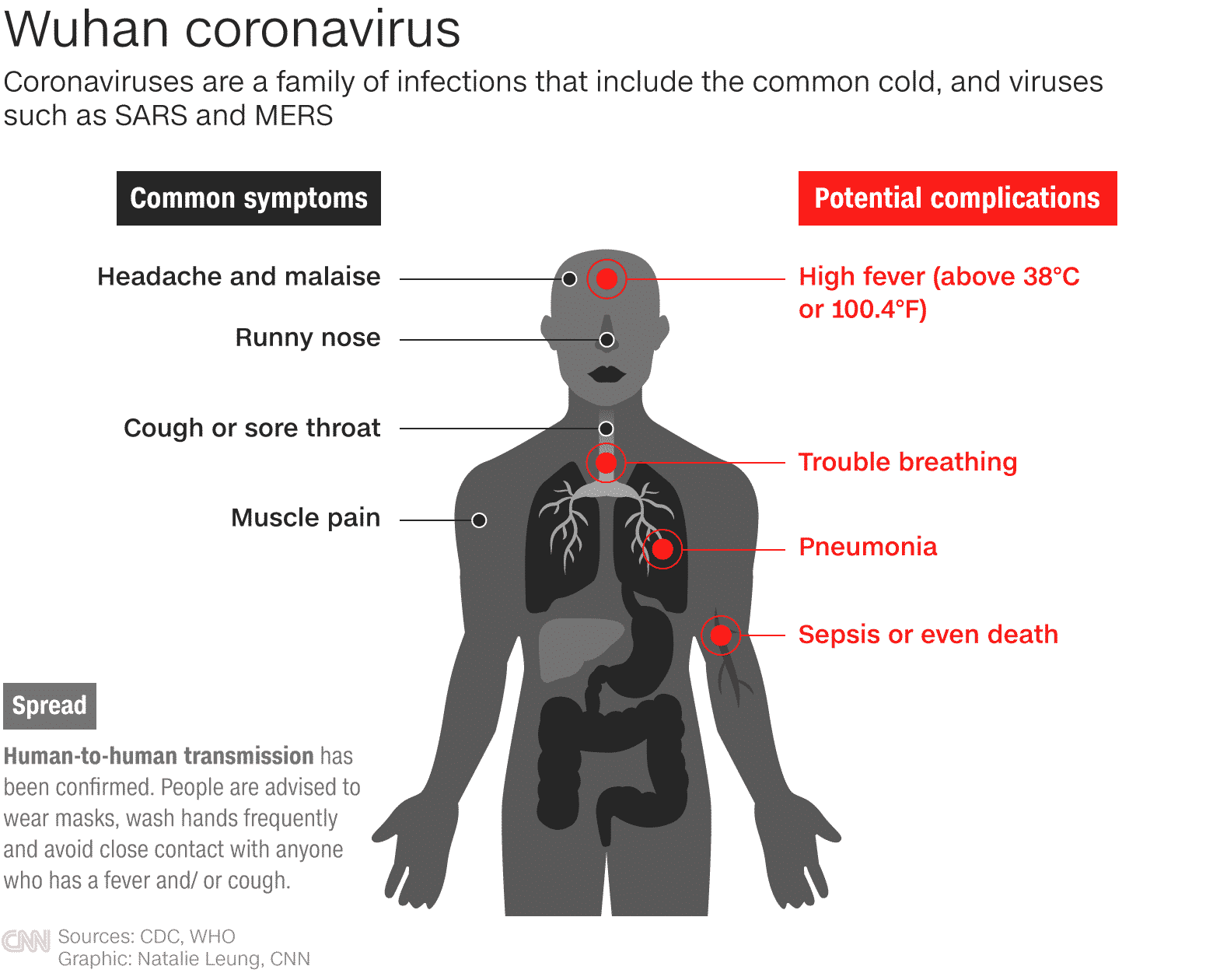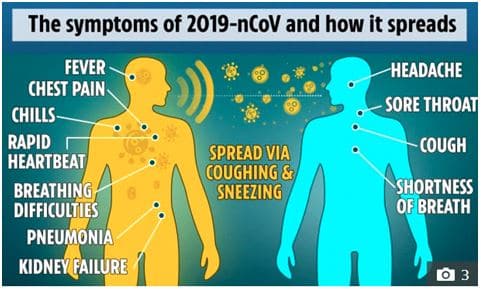Coronaviruses (CoV) are a large family of viruses that cause illness ranging from the common cold to more severe diseases such as Middle East Respiratory Syndrome (MERS-CoV) and Severe Acute Respiratory Syndrome (SARS-CoV).
A novel coronavirus is a new coronavirus that has not been previously identified. The virus causing coronavirus disease 2019 (COVID-19), is not the same as the coronaviruses that commonly circulate among humans and cause mild illness, like the common cold.
Things to know:
- Coronaviruses circulate in animals and some of these coronaviruses have the capability of transmitting between animals and humans. This is known as a Spillover Event.
- The COVID-19 or SARS-CoV-2 virus is a betacoronavirus, like MERS-CoV and SARS-CoV. All three of these viruses have their origins in bats. The sequences from U.S. patients are similar to the one that China initially posted, suggesting a likely single, recent emergence of this virus from an animal reservoir. The epicentre of the outbreak in Wuhan, Hubei Province, China had some link to large seafood and live animal market, suggesting animal-to-human spread.
- COVID-19 is a new strain that was discovered in 2019, previously not identified in humans.
- Coronaviruses are zoonotic, meaning they can transmit between animals and people but several patients reportedly did not have exposure to animal markets, indicating person-to-person Person-to-person spread was subsequently reported outside Hubei and in countries outside China.
Symptoms:
- Common signs of infection include
- Respiratory symptoms: fever, cough, shortness of breath and breathing difficulties.
- In more severe cases, the infection can cause pneumonia, severe acute respiratory syndrome, kidney failure and even death.

What to do if symptomatic?
DO’s & DON’Ts
- Stay home
- Do not visit public areas.
- Do not leave, except to get medical care.
- Be sure to get medical care if you feel worse or you think it is an emergency.
- Avoid using public transportation.
- Home Isolation/Self Quarantine
- You should stay in a specific separate room and away from other people in your home. Use a separate bathroom.
- Restrict contact with pets and other animals, just like you would around other people.
- reports of pets or other animals becoming sick with COVID-19, it is still recommended that people with the virus limit contact with animals until more information is known. If you must care for your pet or be around animals while you are sick, wash your hands before and after you interact with them. Refer here for more details: COVID-19 and Animals.
- Maintain social distancing
- Maintain at least 1 meter (3 feet) distance between yourself and anyone who is coughing or sneezing.
- Precautions:
- Wear a facemask when you are around other people and before you enter a healthcare office.
- Cover your mouth and nose with a tissue when you cough or sneeze.
- Dispose of used tissues in a lined trash can.
- Wash hands immediately with soap and water for at least 20 seconds. If soap and water are not available, clean your hands with an alcohol-based hand sanitizer that contains at least 60% alcohol.

Why does precaution need to be taken?
- When someone coughs or sneezes they spray small liquid droplets from their nose or mouth which may contain the virus. If you are too close, you can breathe in the droplets, including the COVID-19 virus if the person coughing has the disease.

Standard recommendations
- Regular hand washing, covering mouth and nose when coughing and sneezing, thoroughly cooking meat and eggs.
- Avoid close contact with anyone showing symptoms of respiratory illness such as coughing and sneezing.
*Remember*
National and local authorities will have the most up to date information on the situation in your area. Calling in advance will allow your health care provider to quickly direct you to the right health facility. This will also protect you and help prevent the spread of viruses and other infections.
Who is at risk of a serious illness?
- Older adults and people of any age who have serious underlying conditions.
*Monitor your symptoms and seek medical attention *
Additional Information on Quarantining of passengers:
For passengers coming from places of infected zones at Health Counters get categorized into A, B, C
- Category A (High Risk) – A passenger with fever, cough, shortness of breath, with a history of travel to or residence in a country/area or territory reporting local transmission of COVID-19 disease during the 14 days before symptom onset. OR A patient with an acute respiratory illness AND having been in contact with a COVID19 case in the last 14 days before the onset of symptoms; Action: – Segregated from other passengers and sent for Isolation
- Category B (Moderate Risk) – A asymptomatic passenger coming from China, Democratic Republic of Korea, France Germany, Spain, Italy, Iran and are elderly (above 60 years), Hypertensive, Diabetic, Asthmatic Action: – To be shifted by State Government to a dedicated quarantine facility and monitored daily by State Government for next 14 days. In case, they develop symptoms, they should be isolated.
- Category C (Low Risk) – A asymptomatic passenger coming from any COVID 19 affected country including passengers coming from China, Democratic Republic of Korea, France Germany, Spain, Italy, Iran. Action: – Kept under Home Quarantine and will be monitored by IDSP network for 14 days, if they develop Fever/ Cough/ Difficulty in breathing within 14 days after return from any COVID 19 affected countries.
- The Helpline Email ID for corona-virus: [email protected]
- The Helpline Number for corona-virus: +91-11-23978046 Toll-Free No: 1075

NOTE
- Counter stigma and panic by learning and sharing facts. Communicating the facts that viruses do not target specific racial or ethnic groups and how COVID-19 spreads can help stop the stigma and panic.
CUBA influence on containing the outbreak
>>While other countries are trying to contain the outbreak and finding a cure cuba has played an important role in identifying :
So far it is known that one of the drugs manufactured by Cuba, Interferon alfa-2b, has managed to effectively cure more than 1,500 patients from the coronavirus and is one of 30 drugs chosen by the Chinese National Health Commission to combat respiratory disease.
“The flagship product of the set of Cuban medicines” with the drug developed in both Cuba and China in a joint venture as part of an agreement between the socialist countries.
*There is no vaccine for COVID-19 as of now. *
*Keep monitoring your symptoms and seek medical attention required immediately*
BE
SAFE
INFORMED
SUPPORTIVE
ALERT
Be READY to fight #COVID-19

